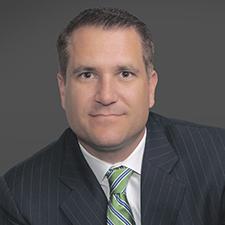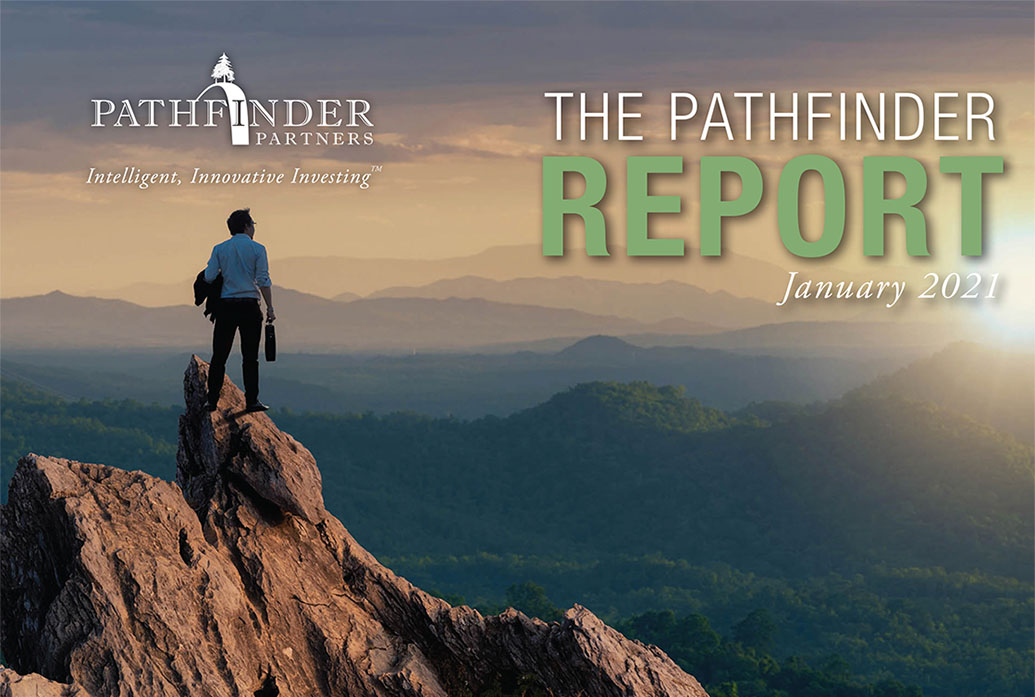Guest Feature
Act Quickly, But Decide Slowly – Lessons Learned During a Pandemic
By Brent Rivard, Managing Director
 Like most, I cannot believe it has been almost a year since the pandemic upended our lives and businesses – time moved fast. On the other hand, it is starting to become hard to remember what “normal” life looked like prior to March 2020 – and time moved slowly. Either way, it has been long enough to do some reflection – what have I learned over the last ten months? What worked and what didn’t and how can I apply those lessons to my professional and personal life in the future?
Like most, I cannot believe it has been almost a year since the pandemic upended our lives and businesses – time moved fast. On the other hand, it is starting to become hard to remember what “normal” life looked like prior to March 2020 – and time moved slowly. Either way, it has been long enough to do some reflection – what have I learned over the last ten months? What worked and what didn’t and how can I apply those lessons to my professional and personal life in the future?
No matter how hard you try, it is hard to plan for the unexpected, or in this case, the unexpected that virtually NOBODY alive today has seen before. For reflection, I spent time looking back over the pictures on my phone, appointments on my calendar and business notes since January 2020.
It is clear that I didn’t know what was coming last January. Most of the pictures are of my family, ski trips with my buddies and a couple of annual conferences. Oh, and nobody is wearing a mask. We were aware of Covid-19 but it wasn’t even a small percentage of our focus. By February, it was creeping up on our radar. We started contingency planning at the office for avoiding the “spread.” Mitch had the forethought to order a gross of facemasks in January – I was skeptical and I made a little fun of his nervousness. (As a sidenote, I ended up giving most of the masks to an ER doctor friend in April when they were short on PPE – Thanks, Mitch). I took my kids to Disneyland mid-February and went to my last live UCLA basketball game on February 29th. Today, both of those activities seem like things that will never happen in quite the same way again.
March. March 11, 2020 to be exact. I was lucky enough to be sitting in what would be my last large in-person meeting – a Board of Trustees meeting at my kids’ school. The leadership of the school would prove to be ahead of most businesses and organizations while planning for the impacts of the pandemic on our more than 600 families and had been working on contingency plans since January. There was a particular slide in our board presentation that resonated with me. It would prove to be the primary principles that I embraced, both personally and professionally, as we ventured into the abyss of crisis. Here is what it said:
Principles through which we act/plan in a time of crisis
- Put ourselves in a position to act quickly but decide slowly.
- Make conservative choices based upon the most recent data.
- Only communicate definitive, future actions that are triggered by clear, objective symptoms.
I can’t tell you how many times I referenced my photo of that slide over the past year. We closed the office on March 13th and the stay-at-home order went into effect not long after.
Put ourselves in a position to act quickly, but decide slowly
A lot of our conversations in the first few weeks of this crisis focused on this mantra. We took deep breaths and started thinking about our business in new ways and from different angles. There were new threats that we had not seen before – regulations that took away tools to deal with delinquent renters and increased delinquency because tenants were losing their jobs, for example. And of course, a level of uncertainty none of us had seen in our careers. We wanted to figure out a way to survive while being a good business partner and a good landlord, aware of those struggling in our community. We created new metrics for our business. The primary metric we created and have focused on throughout the pandemic is what we call Sustainable Economic Vacancy or SEV. It was not just vacancy we were worried about; it was rent collections. What reduction in collections could we sustain and still pay our bills, service our debt and protect investors’ capital? On every level, we reminded ourselves to decide slowly but once we decided, to act quickly.
 In addition, I was leaning on all my experiences to get through this and I started applying some of what I have learned as a pilot. I finished my pilot’s license in 2013 and have racked up over 1,200 hours in the air in the last seven years including hours and hours of training, plus a great deal of reading and studying. I thought about what I had learned about flying, where risk is high, mistakes are costly and deciding slowly, but acting quickly can save lives. We focused on “flying the plane” and keeping the business moving in the right direction. We made small changes one at a time, measured the impact and course corrected as needed. We used what pilots call Crew Resource Management or CRM; our team was working together in ways we hadn’t seen before. In a crisis, you pull from everything you know to make it through.
In addition, I was leaning on all my experiences to get through this and I started applying some of what I have learned as a pilot. I finished my pilot’s license in 2013 and have racked up over 1,200 hours in the air in the last seven years including hours and hours of training, plus a great deal of reading and studying. I thought about what I had learned about flying, where risk is high, mistakes are costly and deciding slowly, but acting quickly can save lives. We focused on “flying the plane” and keeping the business moving in the right direction. We made small changes one at a time, measured the impact and course corrected as needed. We used what pilots call Crew Resource Management or CRM; our team was working together in ways we hadn’t seen before. In a crisis, you pull from everything you know to make it through.
Make conservative choices based upon the most recent data
The data and rules were changing. Every. Single. Day. The government was quick to act with the initial fiscal stimulus, but the rollout was spotty, and it was difficult to measure where the impact would be. Regulations regarding tenants, landlords, lenders and borrowers were changing quickly and differed in every market. The risks of the virus were not fully understood. Again, our business wasn’t moving very quickly so we had the opportunity to digest the data to help us make thoughtful decisions. Lucky or smart, we had trimmed our portfolio down over the years to primarily multifamily real estate which, so far, have proven to be one of the most resilient asset classes during the pandemic. We made decisive changes to our business with the goal of protecting our assets and investor capital while being a good landlord. I can think of other businesses (like restaurants) where the strategy of making conservative choices may not have worked and aggressive strategies would need to be employed to protect businesses and employees. I don’t envy those business owners and the pressures they faced and believe those that make it through will prove to be some of the strongest and most resilient businesses coming out of the crisis.
Only communicate definitive, future actions that are triggered by clear, objective symptoms.
We increased communication in every way; to our investors, property managers, employees, tenants, lenders, vendors – even others in the same business, some would call them competitors, with whom we shared data and ideas. But before each communication, we discussed the messaging as a team to make sure that we were communicating definitively and had clear reasons for the communication. We produced seven comprehensive “Special Communications” for our investors during the past ten months and kept them updated and informed about our progress, challenges and strategies throughout the crisis. As I prepared to write this column, I looked back at ten months of notes from the daily meetings with my partners last spring which turned into bi-weekly, then weekly meetings as the fog cleared. I’m proud of the way we dealt with our business, our employees and our families. We weren’t perfect but we stayed focused on the right issues at the right time. As an aside – there’s nothing better than having great partners you can count on!
As summer turned to fall, our portfolio stabilized, our path during the crisis became clear, we began to think about what to do next. The pandemic is different than the “Great Recession” but still a crisis which we believe will produce investment opportunities. We launched Pathfinder Partners Opportunity Fund VIII in late summer and held our final closing at year-end with over $50 million in commitments. While we haven’t found the distressed investment opportunities yet, we believe they will come and when they do, we will decide slowly, but act quickly! Meanwhile, we have grown our new Pathfinder Income Fund platform with a sixth property and expect to soon have a seventh. Capital flows in steadily as investors look out at a sea of uncertainty and volatility with few islands of stability – like our well-diversified portfolio of income-generating apartments
Here’s to a brighter 2021 – I hope each of you has a safe and healthy year.
Brent Rivard is Managing Director, CFO and COO of Pathfinder Partners, LP. Prior to joining Pathfinder in 2008, Brent was the President of a national wealth management firm and CFO/COO of a one of southern California’s leading privately-held commercial real estate brokerage firms. He can be reached at brivard@pathfinderfunds.com.
Share this Article
IN THIS ISSUE
PATHFINDER PARTNERS INCOME FUND, L.P.
A Stablized Multifamily Fund
CHARTING THE COURSE
Why the Next Few Years Could be a Golden Age for Multifamily Investing
FINDING YOUR PATH
A Time for Leadership and a Time to Heal
GUEST FEATURE
Act Quickly, But Decide Slowly - Lessons Learned During a Pandemic
ZEITGEIST: NEWS HIGHLIGHTS
TRAILBLAZING
Park Paloma, Phoenix, AZ
NOTABLES AND QUOTABLES
Reflection
